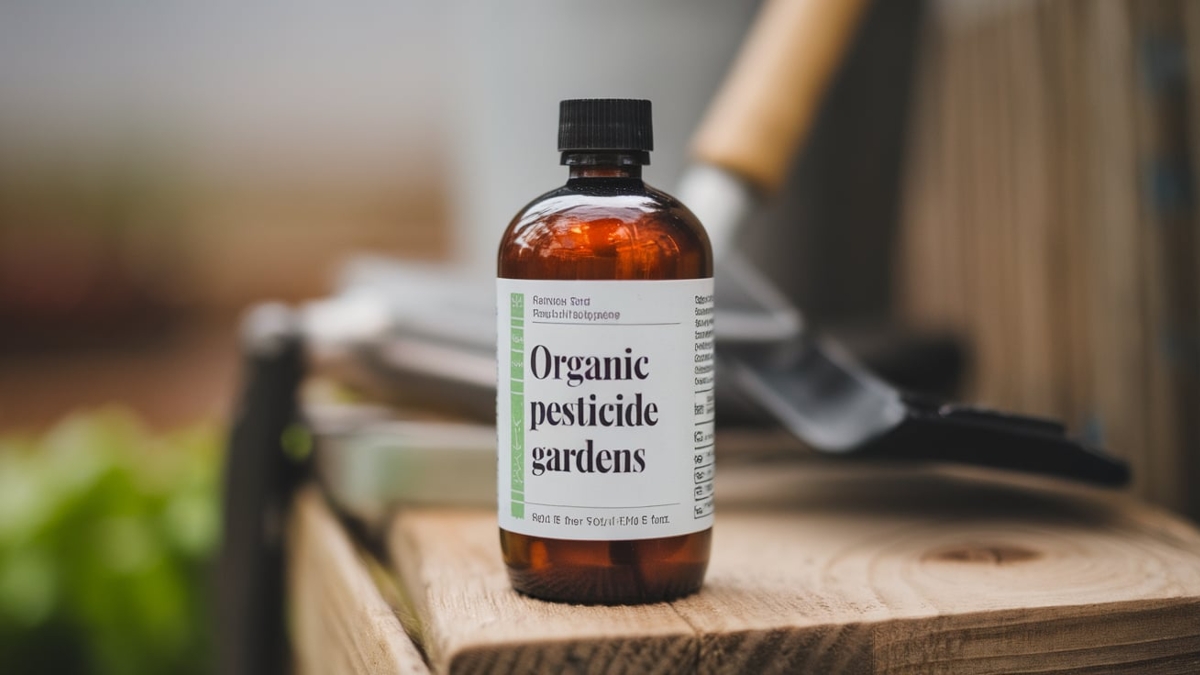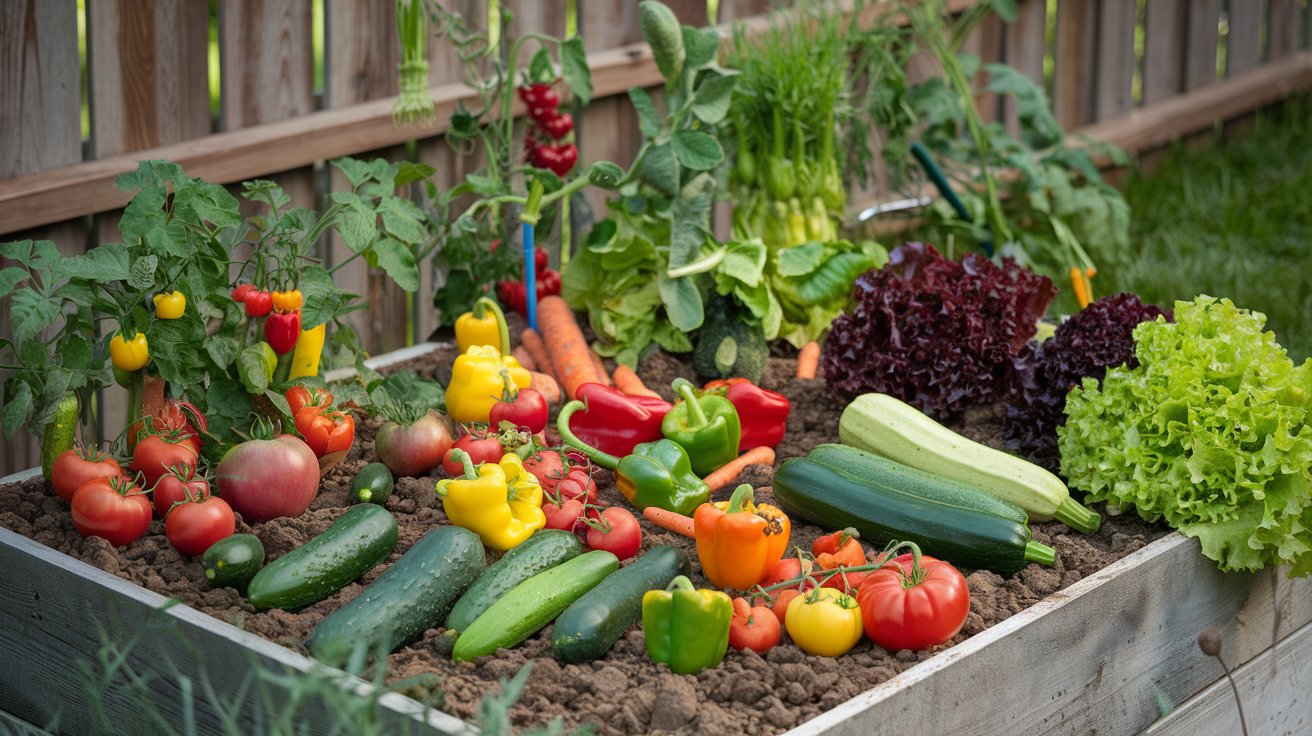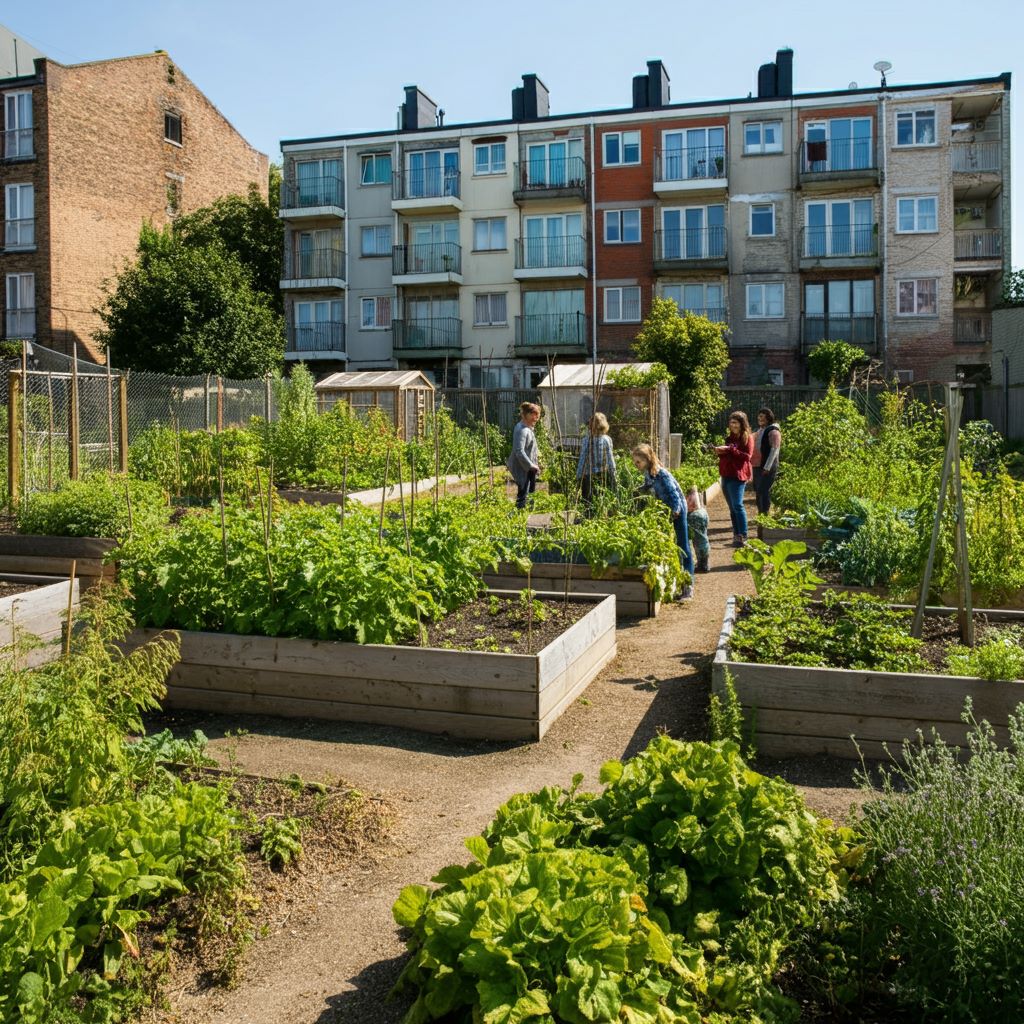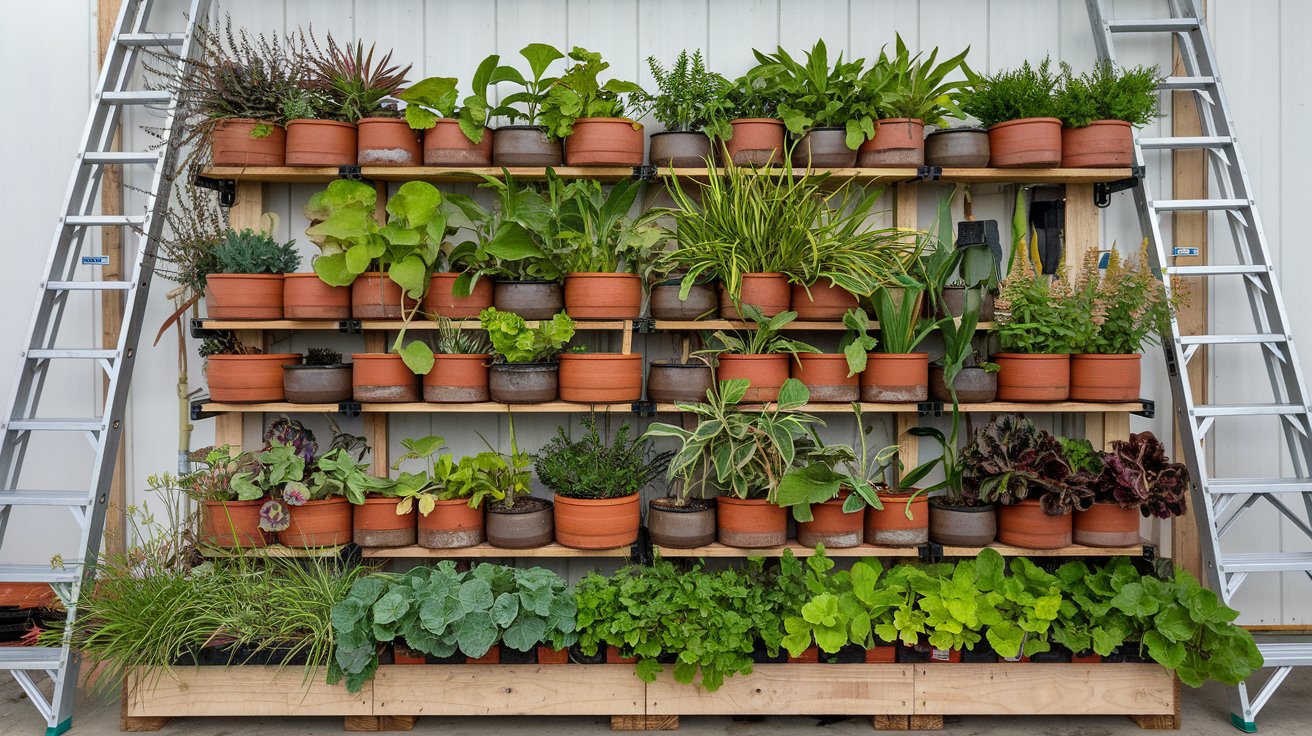A flourishing vegetable garden is a dream for many gardeners, whether you’re a seasoned pro or a first-time grower. However, this dream can quickly become a nightmare when pests invade. Bugs, insects, and even animals can wreak havoc on your crops, leaving your plants vulnerable to damage and diseases. The good news? You don’t need to resort to harmful chemicals to protect your garden. A spray for vegetable garden can help you combat these pesky invaders effectively and safely. This article will guide you through selecting the best spray to keep your vegetable garden healthy and thriving.
Key Takeaways
- Effective pest control is essential for a thriving vegetable garden.
- Organic, non-toxic sprays are often the safest option for both you and your plants.
- Proper application and choosing the right spray for your specific garden needs are key to success.
- Spraying needs to be done regularly and correctly to avoid damage to plants while ensuring maximum pest control.
Table of Contents
Why Pest Control Matters for Your Vegetable Garden
Pest control is one of the most important aspects of vegetable gardening. Pests, ranging from insects like aphids and caterpillars to larger threats such as rabbits and squirrels, can cause significant damage to your crops. Insects, for instance, can quickly weaken plants by feeding on their leaves, stems, and roots. This damage not only reduces the quantity of your harvest but can also affect the overall health of the plants.
Common pests like aphids and caterpillars can carry diseases, spreading them from plant to plant. The result? A rapid decline in plant health, and potentially, a crop that fails before it’s even ready to harvest. A spray for vegetable garden helps to combat these issues, protecting the integrity of your crops, increasing yields, and improving the quality of your vegetables.
What to Look for in a Spray for Vegetable Garden
When choosing a spray for vegetable garden, there are several factors to consider to ensure you’re selecting the right one for your needs. You want to make sure it’s not only effective but also safe for both you and your plants. Here’s what to look for:
1. Non-Toxic Ingredients
- Safety should always be your priority, especially if you’re growing food. Opt for sprays made from natural, non-toxic ingredients that won’t harm your plants or the environment. Organic sprays like neem oil and insecticidal soaps are excellent examples.
- If you have pets or small children, using non-toxic sprays is crucial to prevent exposure to harmful chemicals.
2. Organic vs. Synthetic
- Organic sprays use natural ingredients to deter pests without harmful chemicals. While they may take longer to work, they’re safer and more environmentally friendly.
- Synthetic or chemical sprays tend to be more potent and effective quickly, but they can harm beneficial insects, like bees and ladybugs, that help your garden. Consider using these only when necessary.
3. Ease of Application
- Ease of use can make all the difference in maintaining a healthy garden. Choose sprays that are easy to apply, such as those in ready-to-use bottles or spray cans. If you have a large garden, look for products that can be used with a hose-end sprayer to cover more area quickly.
4. Effectiveness for Common Pests
- Not all sprays target the same pests. Make sure the spray you choose is effective against the specific insects or diseases affecting your garden. For example, neem oil is great for controlling aphids, spider mites, and fungal infections.
By considering these factors, you’ll be able to select a spray that fits your garden’s needs.
Types of Sprays for Vegetable Gardens
When selecting a spray for vegetable garden, it’s important to know the different types available. Broadly, sprays can be categorized into organic and chemical options. Understanding these two categories will help you choose the best spray for your garden based on your goals and ethical preferences.
Organic Sprays
Organic sprays are made from natural ingredients like plant extracts, oils, and minerals. These sprays tend to be safer for both you and the environment, as they don’t contain harmful chemicals. Here are some popular organic sprays for vegetable gardens:
- Neem Oil: This is one of the most popular organic insecticides. Neem oil works by disrupting the feeding and breeding patterns of pests, making it highly effective against a wide variety of insects, including aphids, whiteflies, and spider mites.
- Insecticidal Soap: Made from fatty acids, insecticidal soap works by suffocating soft-bodied insects like aphids and mealybugs. It is a gentle yet effective option for organic gardeners.
- Diatomaceous Earth: This is a fine powder made from fossilized remains of algae. It works by piercing the exoskeletons of insects, causing them to dehydrate and die.

Organic sprays such as neem oil and diatomaceous earth on a shelf in a gardening store.
Chemical Sprays
Chemical sprays are synthetic solutions designed to kill or repel pests quickly. While these sprays can be more effective at eliminating pests, they often come with risks, particularly to beneficial insects, pollinators, and even your soil health. Common chemical sprays include:
- Pyrethrins: Derived from chrysanthemum flowers, pyrethrins kill a wide range of insects quickly but can also harm beneficial insects like bees.
- Pesticide Sprays: These contain synthetic chemicals that target specific pests but may be toxic to humans and wildlife if not used correctly.

A comparison between organic and chemical sprays on a gardening table.
Best Organic Spray for Vegetable Gardens
If you’re an eco-conscious gardener, organic sprays are the best option for keeping your vegetable garden pest-free while staying environmentally friendly. Organic sprays are gentle on the environment and safe for edible plants.
Here are some of the best organic sprays for vegetable gardens:
- Neem Oil: Known for its broad-spectrum effectiveness, neem oil is great for controlling a variety of pests, including aphids, spider mites, and leaf miners. It is also an excellent option for managing fungal infections like powdery mildew.
- Insecticidal Soap: This soap is ideal for treating soft-bodied insects such as aphids, mealybugs, and whiteflies. It’s easy to use and safe for both the plants and the environment.
Comparison of best organic sprays for vegetable gardens (ingredients, effectiveness, price)
| Organic Spray | Ingredients | Effectiveness | Price Range |
| Neem Oil | Azadirachtin, oils | Effective on a wide range of pests | $10-$30 per bottle |
| Insecticidal Soap | Potassium salts, fatty acids | Best for soft-bodied insects | $5-$15 per bottle |
Best Non-Toxic Spray for Vegetable Gardens
Non-toxic sprays are a great choice if you want to ensure your vegetable garden remains safe for pets, children, and wildlife while still effectively controlling pests. These sprays use natural ingredients to repel or kill pests without leaving harmful residues.
Recommended Non-Toxic Sprays:
- Essential Oils: Oils like peppermint, lavender, and eucalyptus are natural pest repellents. These sprays are safe, eco-friendly, and effective against a variety of insects like ants, mosquitoes, and flies.
- Garlic Spray: A simple mixture of garlic and water acts as a strong natural deterrent for pests such as aphids, caterpillars, and beetles. This spray is easy to make at home and works wonders for keeping pests away from your plants.
List of non-toxic sprays for vegetable gardens (safety, pricing, pest control effectiveness)
| Non-Toxic Spray | Key Benefits | Effectiveness | Price Range |
| Essential Oils | Natural repellent | Effective on ants, flies, mosquitoes | $10-$25 per bottle |
| Garlic Spray | Natural pest control | Works on aphids, beetles | $5-$15 per bottle |
How to Apply Spray for Vegetable Garden: Step-by-Step Guide
Applying your spray for vegetable garden properly is just as important as choosing the right product. Here’s how to do it:
- Choose the Right Time: Apply your spray early in the morning or late in the evening when the sun is not too intense. This will help prevent the spray from evaporating too quickly and protect your plants from sunburn.
- Mix and Prepare the Solution: Always follow the manufacturer’s instructions on the label for the correct mixture. Overconcentrated sprays can damage plants.
- Spray Evenly: Ensure you cover the entire plant, including the underside of leaves where pests like to hide. Use a steady, sweeping motion for even coverage.

Step-by-step guide showing a gardener spraying a vegetable garden.
Preventing Pest Problems Before They Start
While sprays are a powerful tool in pest control, prevention is key to avoiding pest problems altogether. You can use several strategies to keep your garden pest-free:
- Companion Planting: Some plants naturally repel pests. For example, planting marigolds can keep aphids at bay, while basil helps deter mosquitoes and flies.
- Crop Rotation: Avoid planting the same crops in the same spot each year. This disrupts the life cycle of pests that tend to favor specific plants.
- Healthy Soil: Well-balanced, nutrient-rich soil strengthens plants and makes them less susceptible to pests and diseases.

Illustrating companion planting for pest control.
Conclusion
Protecting your vegetable garden from pests doesn’t have to be complicated. With the right spray for vegetable garden, you can enjoy healthy, thriving plants without compromising safety or the environment. Whether you choose an organic or non-toxic solution, consistency and correct application will help you maintain a pest-free garden.
By considering your garden’s unique needs, selecting the best spray, and using preventative measures, you’ll ensure that your vegetables grow strong and pest-free, all while staying eco-friendly and safe.
Frequently Asked Questions
What do you spray a vegetable garden with?
You can spray vegetable gardens with organic or non-toxic solutions such as neem oil, insecticidal soap, or garlic spray to keep pests away.
What is the best insecticide for vegetable garden?
Organic insecticides like neem oil or insecticidal soap are among the best for vegetable gardens. These sprays are safe for edible plants and effective against many pests.
What is an all-natural spray for vegetable garden?
An all-natural spray includes neem oil, garlic oil, and essential oil sprays. These natural ingredients repel pests without harming your garden.
What is the best spray for tomato plants?
The best sprays for tomato plants include neem oil and insecticidal soap, both of which target pests like aphids and caterpillars without harming the plants.
How often should I spray my vegetable garden for pests?
Generally, you should spray your garden every 7-14 days or as needed based on the pest pressure in your garden.
Are there any eco-friendly sprays for vegetable gardens?
Yes, eco-friendly sprays like neem oil, diatomaceous earth, and garlic spray are safe for your plants and the environment while effectively controlling pests.

Robert Martin is a passionate blogger and versatile content creator exploring the intersections of personal finance, technology, lifestyle, and culture. With a strong background in financial literacy and entrepreneurship, he helps readers make smarter money moves, build sustainable side hustles, and achieve financial independence.
Beyond finance, Robert shares his insights on home decor and gardening—offering practical ideas for creating beautiful, functional living spaces that inspire comfort and creativity. He also dives into the dynamic worlds of sports and celebrity news, blending entertainment with thoughtful commentary on trends that shape today’s pop culture.
From decoding the latest fintech innovations to spotlighting everyday success stories, Robert delivers content that’s informative, relatable, and actionable. His mission is to empower readers to live well-rounded, financially confident lives while staying inspired, informed, and ahead of the curve.




